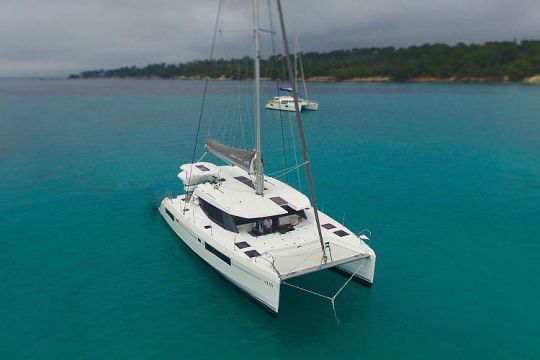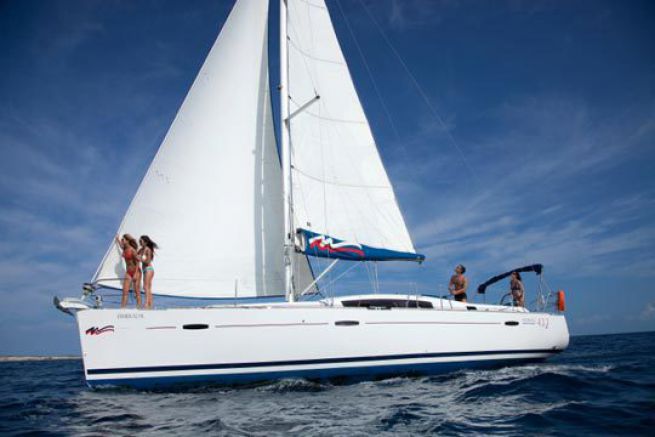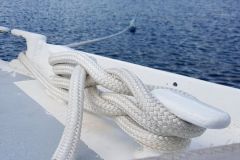Contribute to the cost of living on board
The ship's box is a common kitty to be paid by each crew member for living expenses on board a boat (food, port, fuel). This amount is defined by the owner of the yacht (or by the cruising organisation or sailing school) before the start and must be equal for all, but above all fair. The owner also participates in the cash register, in the same way as the crew members. The money that will not be used at the end of the cruise will be redistributed equitably among each crew member.
It's quite difficult to give an average budget for the cash register, which varies according to the programme: anchorage or berth in the harbour to sleep, a lot of motor or sailing, etc. The amount also depends on the type of boat (fuel tank size, length for berth, etc.). Finally, if you are on holiday, with your toes fanned out, the amount is likely to be higher than if you go on a learning cruise or a regatta and put your hand to the wheel (you work your watches like everyone else!)
Admittedly, this is a very wide range, but we can expect a budget between 15 and 60 ? per person and per day to feed the cash register. A variable budget that must absolutely be defined before departure to avoid any conflict once at sea.

Food and beverage costs
The cash box allows you to buy food and drink for the duration of the trip. As soon as you sail at least one day on a boat, you will have to take at least one meal. The same applies to drinks.
Some organisations or hire companies with a skipper include restaurant outings in the cash register. A fair method if everyone wants to go to a restaurant and eat for the same budget.
What about alcoholic beverages?
While alcohol is often associated with boating, many boaters do not drink a drop of alcohol on board. The simplest way to do this is to set up a separate on-board fund for those who wish to buy alcoholic drinks, which will not penalise the other team members by obliging them to contribute.

Port fees
While cruising, or on any voyage, you may have to call at ports other than the ship's home port. It is therefore necessary to pay a daily fee which varies according to the place, the size of the boat, the number of days on the pontoon or the season.
Fuel costs
Even a sailboat sometimes sails with the engine. For manoeuvres or simply for lack of wind. To know the fuel expenses, it is enough to calculate the number of hours sailed on the engine (and thus the number of litres of fuel used) and to multiply this value by the price of fuel per litre and to divide the whole by the number of crew members.

Operating expenses
Operating costs relate to what is required to be used on board and which does not fall into any of the above categories (electricity, batteries, fuel, etc.). They can also repair damage encountered during navigation. It is quite difficult to budget for this data. Either you participate in the costs as you go or you calculate a fixed price for the duration of navigation.

 /
/ 







